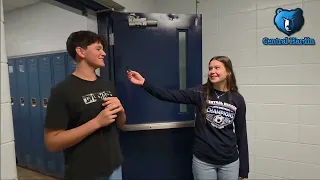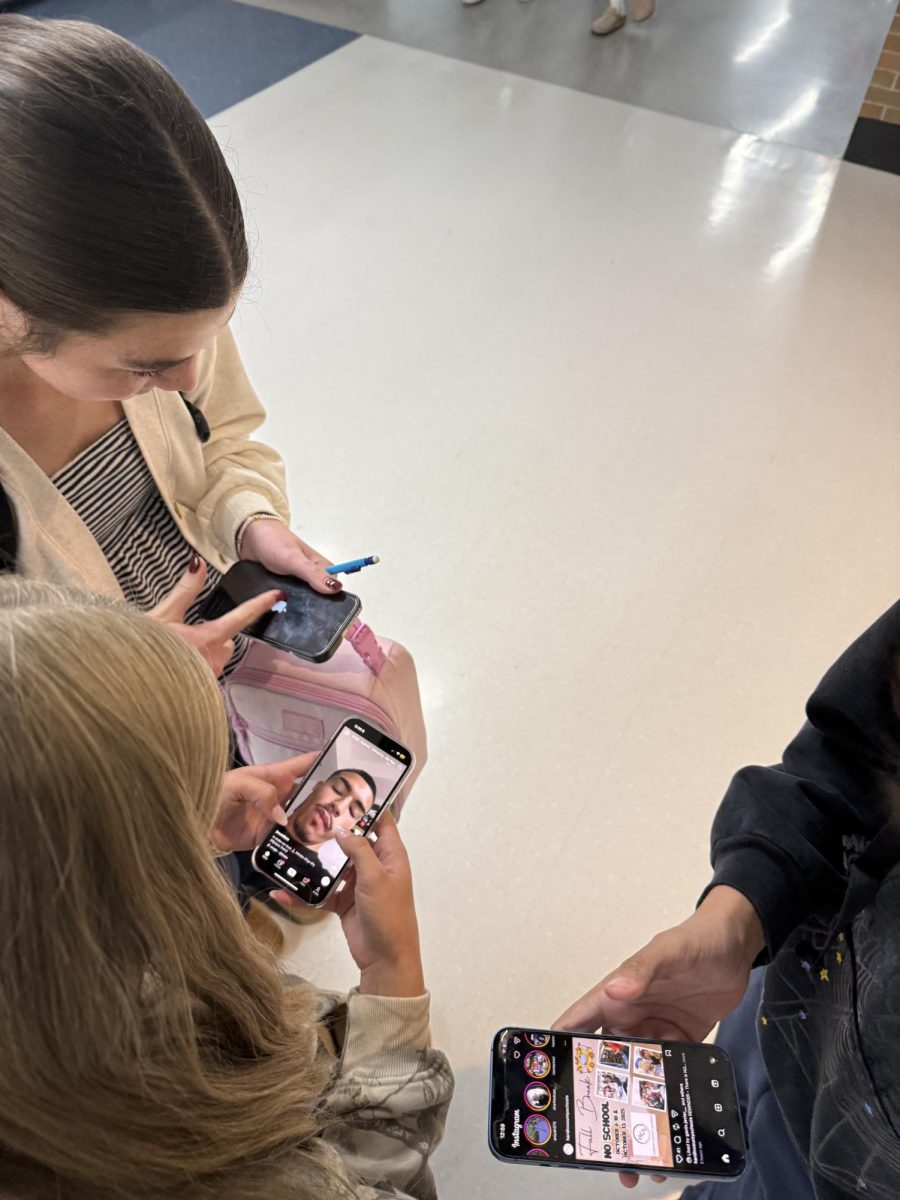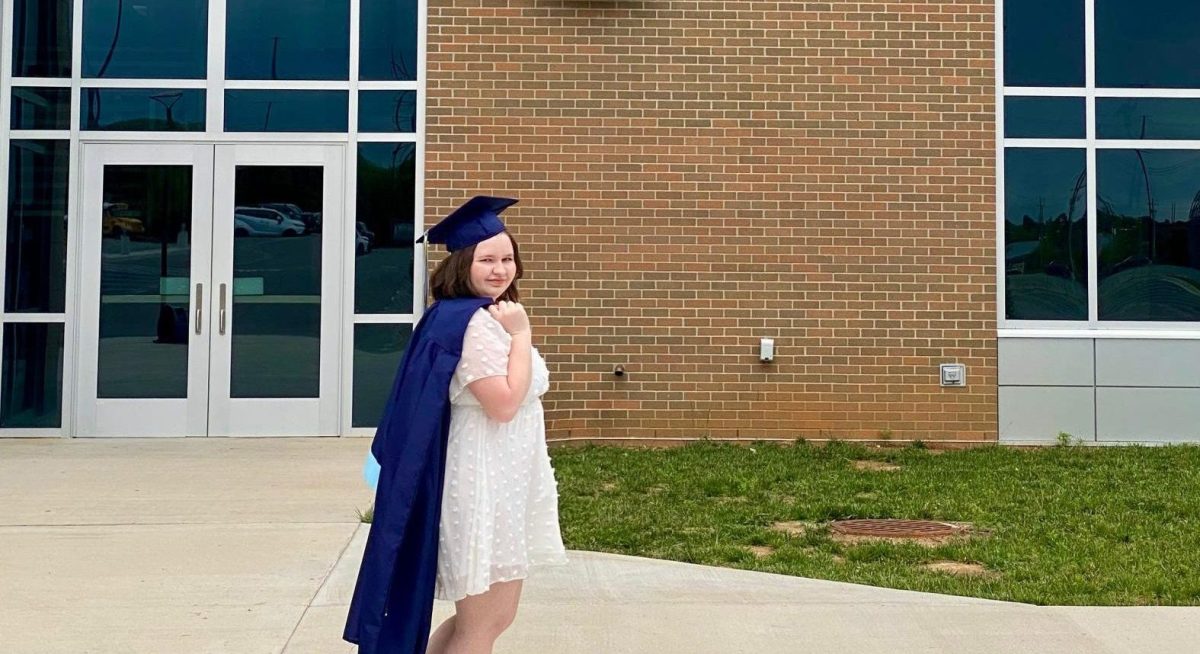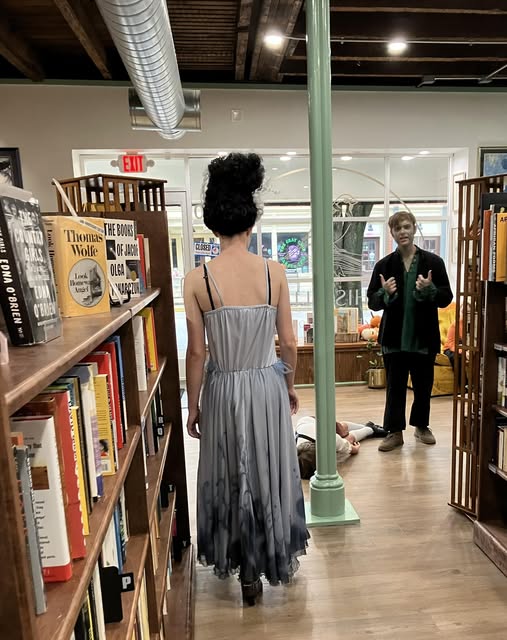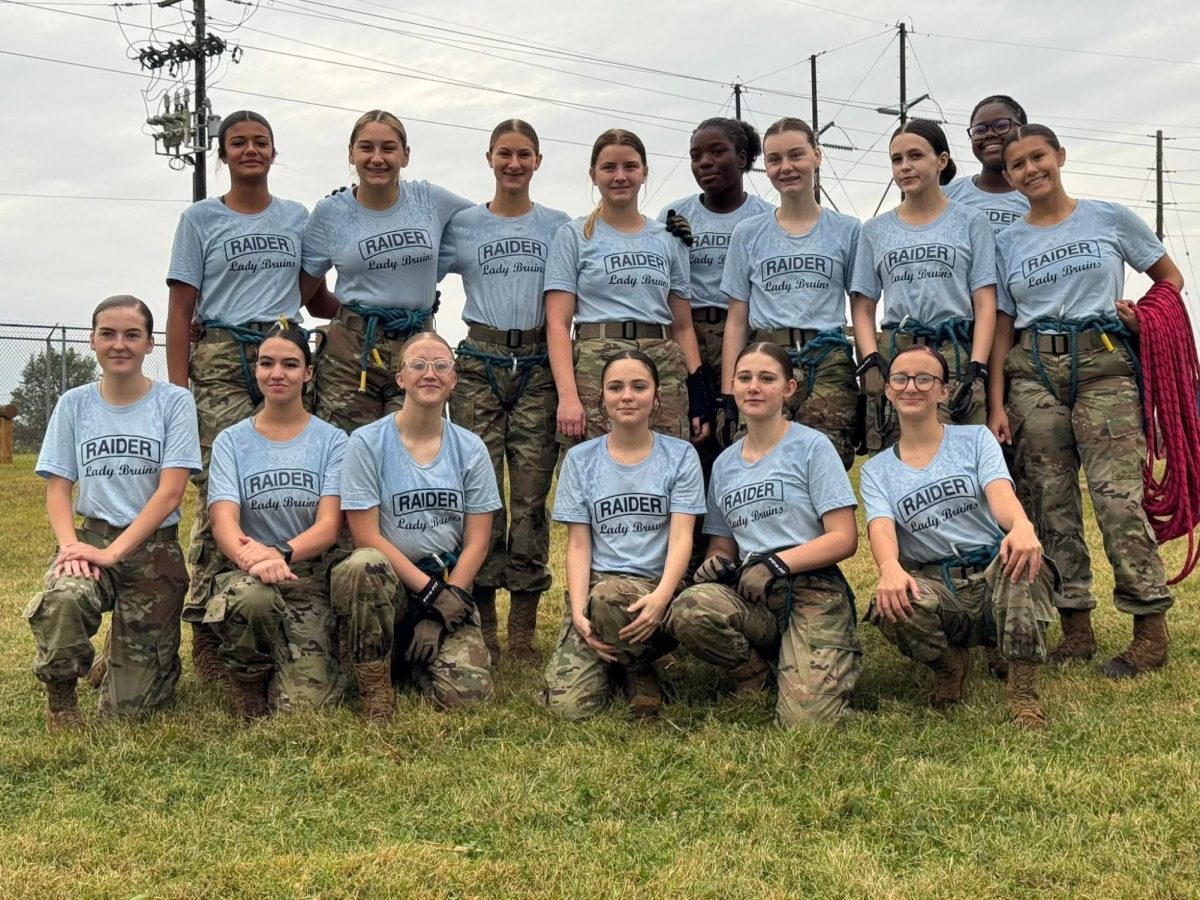If you’ve been around Central Hardin for very long, you’ve probably seen the acronym “EAT” on signs, shirts, and social media posts. It’s the motto of the Bruin Football program, led by Coach Tim Mattingly, who is retiring as a public school educator for 28 years and coach for 35 years, ten of which were spent at Central Hardin.
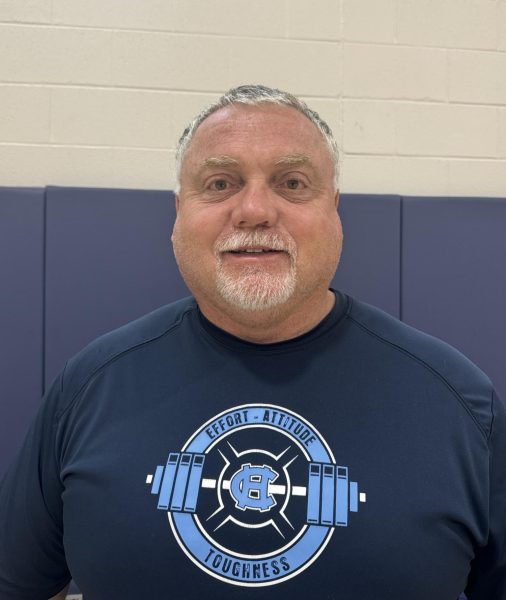
The motto might have surfaced in the last few years as a credo to encompass the values he wanted for his players and coaches, but these three core values are part of the reason that he is ending his tenure at Central with six District Championships, two Region Championships, a few Region Runner-up trophies, a 79-40 record, and dozens of players who went on to play college football.
EFFORT
Mattingly started his coaching career at Washington County in 1990 after playing for two years at Murray State University. He took a job as the defensive coordinator for Meade County in 2004, where he coached for 10 years. When the head coaching job at Central opened up in 2014, he said he saw the opportunity to help the program reach its true potential.
“I always thought that Central Hardin was a place that was interesting to me as far as the type of kids they had,” Mattingly reflected. “I always felt there was more there than meets the eye. And I wasn’t wrong. Because when I got here I realized that there were some athletes here, there were guys who had good work ethic. And there was just something I felt like that I could build on.”
Immediate results were not his goal. Mattingly said it took time to cultivate his core values as a coach.
“It’s a process, football’s a process, it’s a grind, just like a lot of sports are, it doesn’t happen overnight,” Mattingly said. “You can’t force people to do things that you want to do. Sometimes you got to spoon feed them and give them little bits at a time. When I got here, there were a lot of things I wanted to change. But I didn’t change them all immediately. I went with what I thought was the biggest need, and then every year, every month, you just build on it. And it’s just a slow and gradual process.”
The process paid off quickly, however, when Mattingly’s 2015 team won the first Region Championship in school history.
Nevertheless, championships were not the ultimate goal.
“You know, winning is not everything,” Mattingly said. “That’s what a lot of coaches are going to be judged by at the end of the day, but the biggest reward for me, and for any coach should be how many lives have you changed? How many? How many times do you have a student athlete that comes back to you after they’ve graduated and give you a hug, and thank you for what you did for him? That’s where the real rewards are for this profession.”
The rewards are countless for Mattingly. Alumni from 2014 to 2024 recall the lessons they learned from him off the field as much as those learned on the field.
“He could always relate his rules and philosophies to real life,” 2019 alum Chase Conner said.
Conner shared that Mattingly expected those who quit the team to tell him in person, just as they would an employer. Conner also attributes to Mattingly his understanding of the value of showing up on time.
“Being 10 to 15 minutes early to practice was on time,” Conner said, “and he always related that when you show up to work, if you get to work at eight, that doesn’t really make a good impression. If you show up maybe at 7:40 or 7:45, that makes an impression that you want to be there, that you’re enthusiastic about it.”
Mattingly didn’t just “talk the talk.” He modeled the enthusiasm he expected from his players.
“Coach Mattingly played a vital role in not only my life but hundreds of others,” 2020 alum Chase Elmore said. “He instilled life skills in us, ones like discipline, work ethic, accountability, and what it means to be a part of a team. He embodied all of these things daily and led by example.”
“He cared about all of us,” 2022 alum Brock Burton said. “He helped all of us grow as young men by showing us responsibility, passion, and hard work. I learned a lot from the program. [It] definitely gave me an edge on the real world.”
“I got the honor of playing for him and then getting to coach alongside of him,” Elmore said. “The success that Central Hardin had on the field speaks for itself, but the life lessons that were instilled into everyone who came through the program is what sets each player up for life after football.”
ATTITUDE
Any Bruin football player knows that strong work ethic is expected, but how did Mattingly get the message across? He showed them that hard work must be rooted in a sense of purpose.
“Accountability was something that has always been one of my core values,” Mattingly said. “You have to really make people understand the importance of being accountable for everything that they do. And the accountability starts by being expected to be here every day, show up, do the work, and do the work to the best of your ability.”
Mattingly was, perhaps, the best example for his players of “showing up” and “doing the work.”
“His teachings helped me to understand what it takes to be a part of something greater than myself,” 2017 alum Drew Goodman said. “While I’m sure there were personal things going on in his life, he always kept his attention on his players, which isn’t easy to do. When Nolan (Goodman’s brother) told me he was playing football again, I knew that there was no one else I wanted him to play for than Coach Mattingly because of the love he has for the game and dedication he has for his players and team.”
TOUGHNESS
Football is synonymous with toughness. But it’s evident that Mattingly knew how to provide a good balance of high expectations and compassion for his players.
“He holds us to a very high standard, and he holds us accountable for it,” 2024 graduate Walker Meredith said.
Accountability, combined with a strong love for his players, turned out to be the magic combination.
“He was the coach I grew up watching since I was little. He was the rock of the program,” Burton said. “He brought a serious tone to get things done but at the same time made it fun. All in all he was the best coach we could have asked for. He brought a great team together my senior year, and it was the best year of football I ever had. He was there for me when I tore my ACL and it meant a lot. ”
SUCCESS
Part of that fun was creating a family atmosphere among players and coaches, and even with all of the Friday Night Lights memories that Bruin alumni have, the family aspect is what many remember most.
“He’s been like another father figure. He steps up and fills that role,” 2024 graduate Noah Payton said. “It’s not just in football. It’s outside of football too. He checks up on us and sees how we’re doing like we’re family.”
If Mattingly has been a father figure, his wife, Kris, has perfectly fit the role of “mom.” Affectionately known as “Momma Mattingly,” she has embraced the role of coach’s wife and much more.
“She (Kris) has really been my rock through all this, and she enjoys being around the team,” Mattingly reflected. “She calls herself the team mom and the boys refer to her as ‘momma.’ She loves to spoil the players with motivational treats, but more than anything, she loves the fact that she can help those young men mature, and she loves the fact that she’s somebody they can go to when they need help. She’s been my biggest support.”
MATTINGLY’S NEXT CHAPTER
Going into the 2023 season, Mattingly made a decision to retire and wasted no time informing principal Tim Isaacs about his decision.
“I was tired. I planned on just retiring, and maybe not even doing anything in education, maybe seeing what else was out there for a few years. But really, I was not looking for a job.”
A job came along anyway in the form of Bethlehem High School Football Head Coach.
“They (Bethlehem) contacted me because they knew I was retiring. So they were persistent, reached out to me again, and I agreed to talk to them. And then I just felt pulled. I’ve felt like God was maybe telling me that I wasn’t done yet. And this is something that I was intended to do.”
LEAVING A LEGACY
At 56, Mattingly has learned how to be patient with his own growth. He’s proof of the adage, “Good things come to those who wait,” and his experience can remain an example for the Bruin football program and beyond.
“I went from being a head coach at Washington County to stepping down to a defensive coordinator (at Meade County), and that was the best move in my career because it made me take a step back, realize I needed to learn and grow as a person and a coach. And I did that there. I had to up my game in order to make Meade County a better program. So that’s advice for a young coach. Don’t rush. I think some people think they need to be a head coach by a certain age. You really don’t. My first head coaching gig I was 32 years old. I wasn’t ready. I thought I was. But I needed to kind of figure out where I was and what I wanted to do a little bit more. I’d be there 10 years, but it was a great, great place for me to grow.
“And I’m not taking the credit for this. It’s really a combination of support from community, parents, great assistant coaches, and all my staff that brought all this to what it was. It was definitely not a one man show. You can’t do things like that on your own. You try to surround yourself with good people. And I felt like for the most part, I was able to do that.”
Bruin defensive coordinator Tyler Jackson, who is leaving Central Hardin to teach and coach in Ohio, was part of Mattingly’s community.
“Coach Mattingly took Central Hardin to heights it had never reached before and was able to sustain it over the course of his tenure here,” Jackson said. “I am forever grateful for having the opportunity to coach and learn from Coach Mattingly and wish him nothing but the best in the future.”
What advice would Mattingly give to a younger coach like Jackson?
“As a young coach, really pay attention to the relationships that you build with your student athletes, and your coaches, and your parents, and your people that support you. And just realize, too, that you’re not going to please everybody. So don’t try to. Have a set of standards that you will go by, and always look back on those at times of need, times of trouble. That’ll help you with tough decisions. And there are certain things you just can’t bend on. Even if that means sometimes you’d have to let somebody go. But always refer back to those standards, to those values that you hold true to yourself.”

